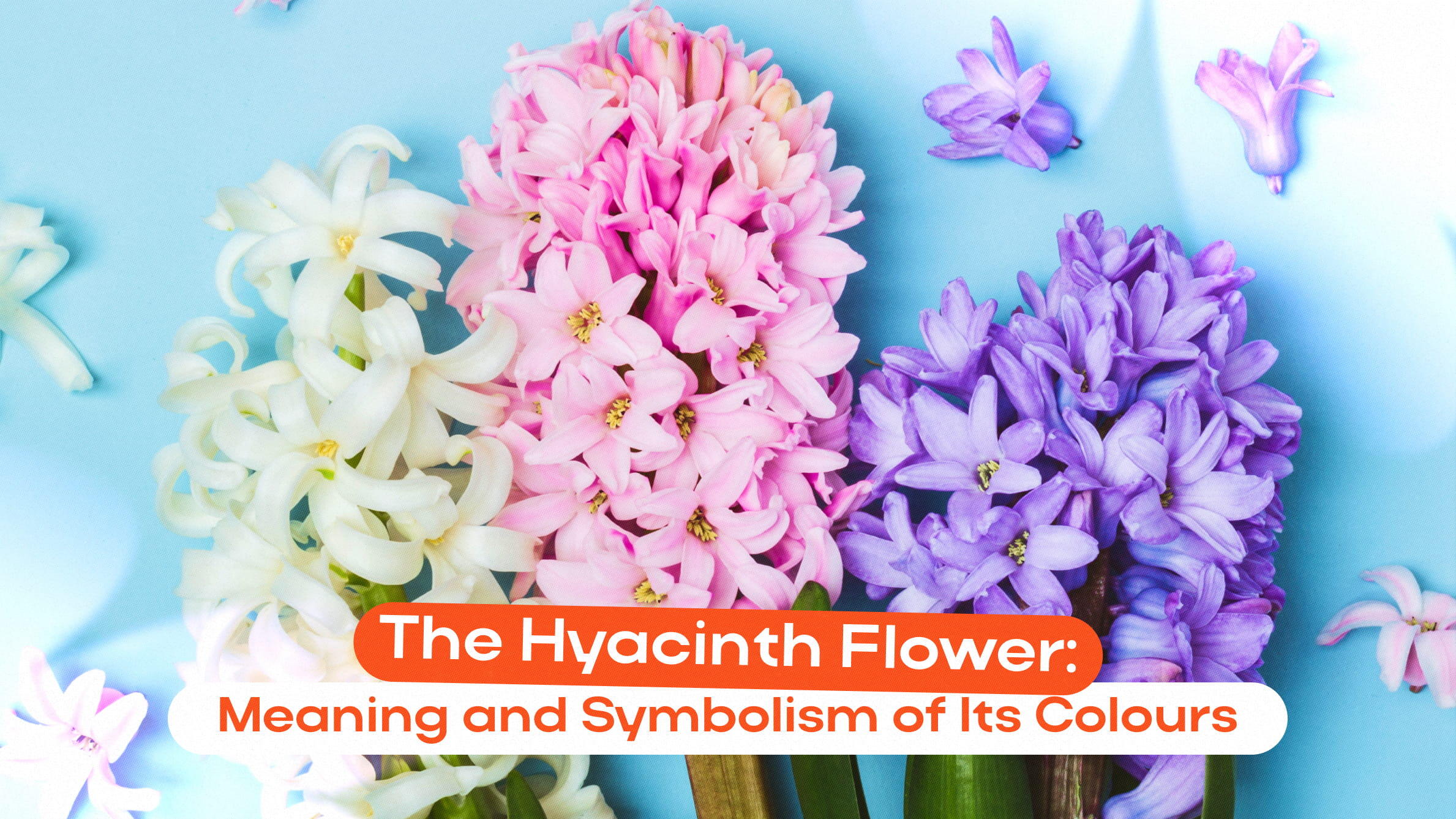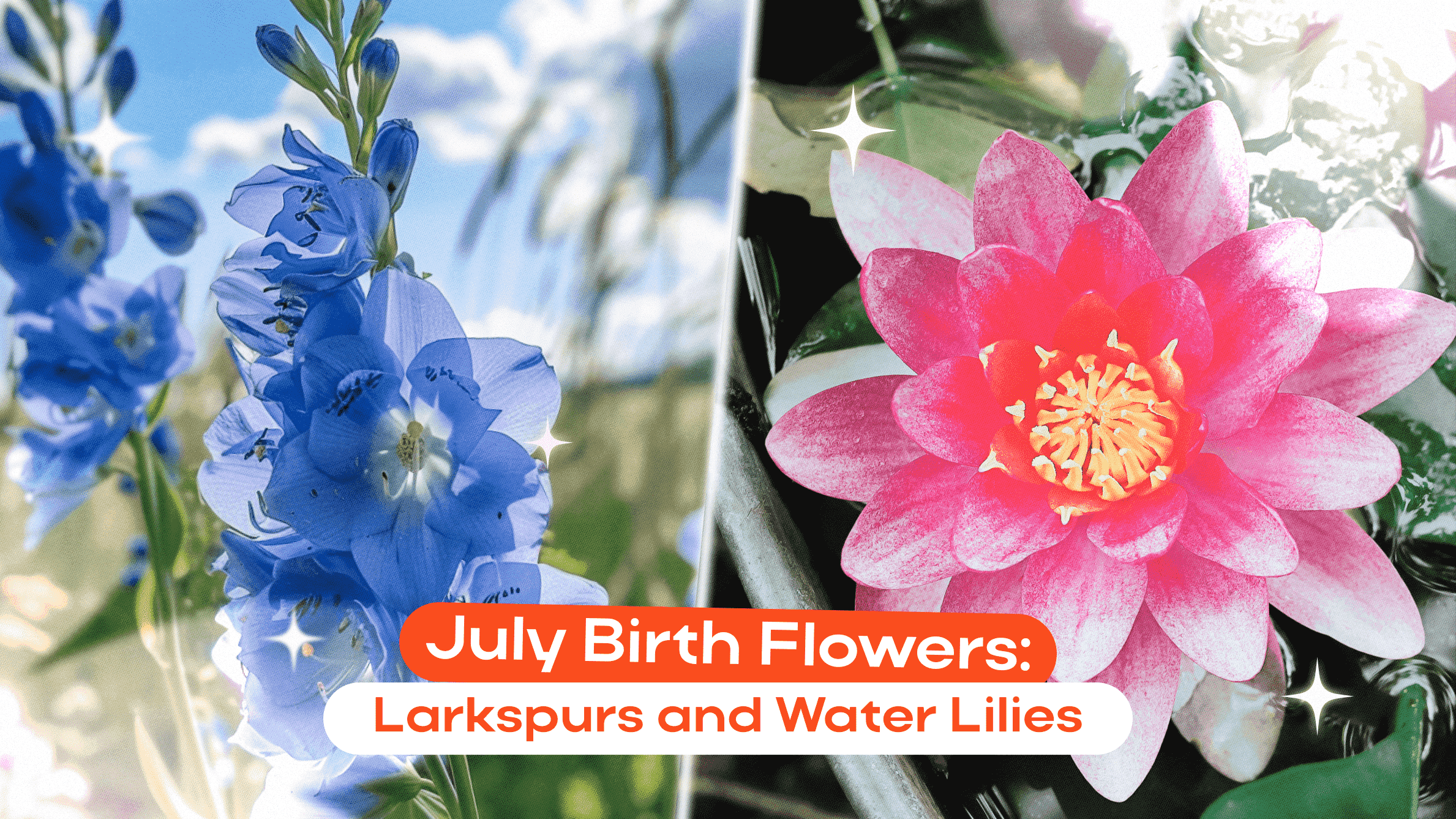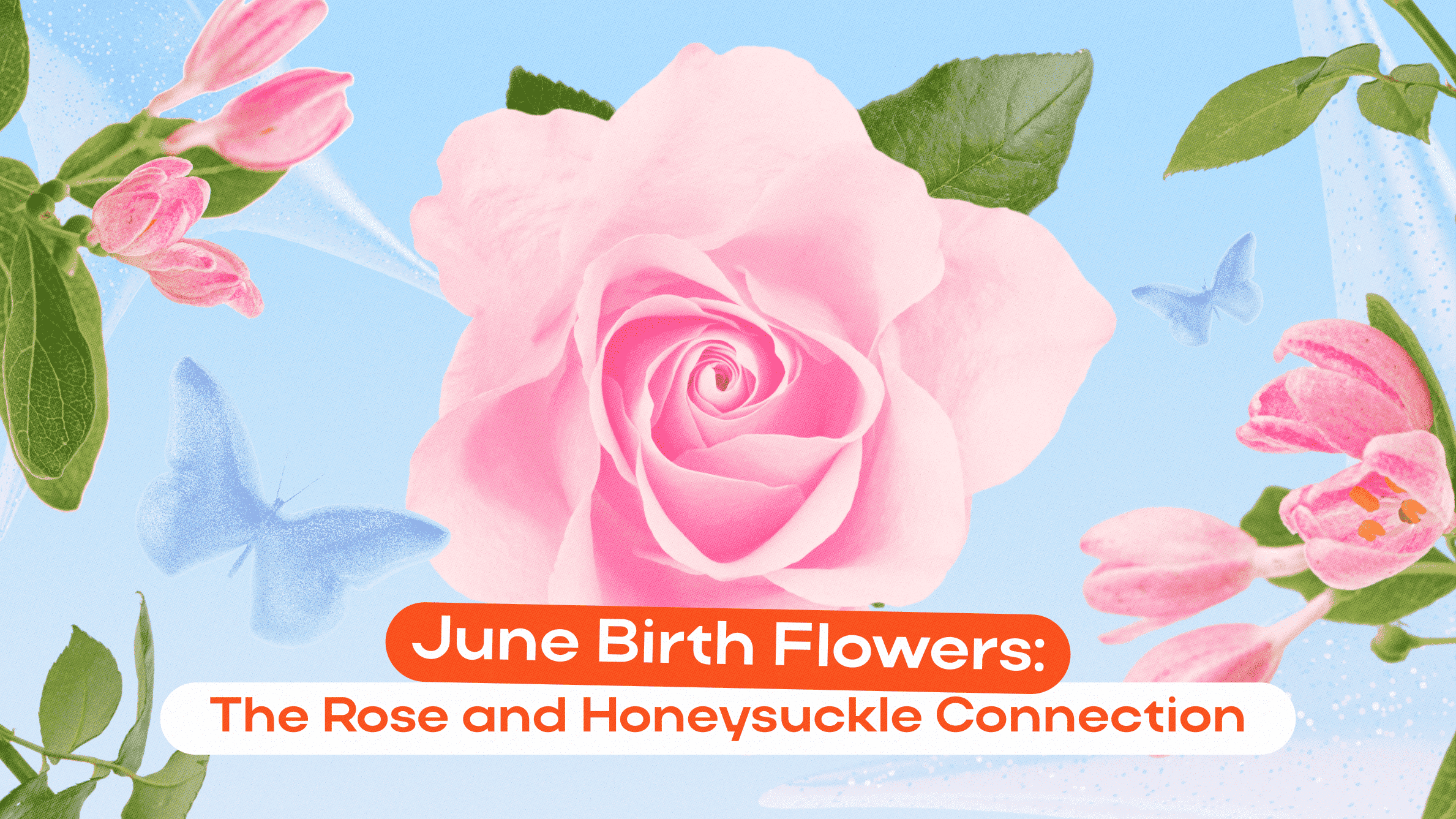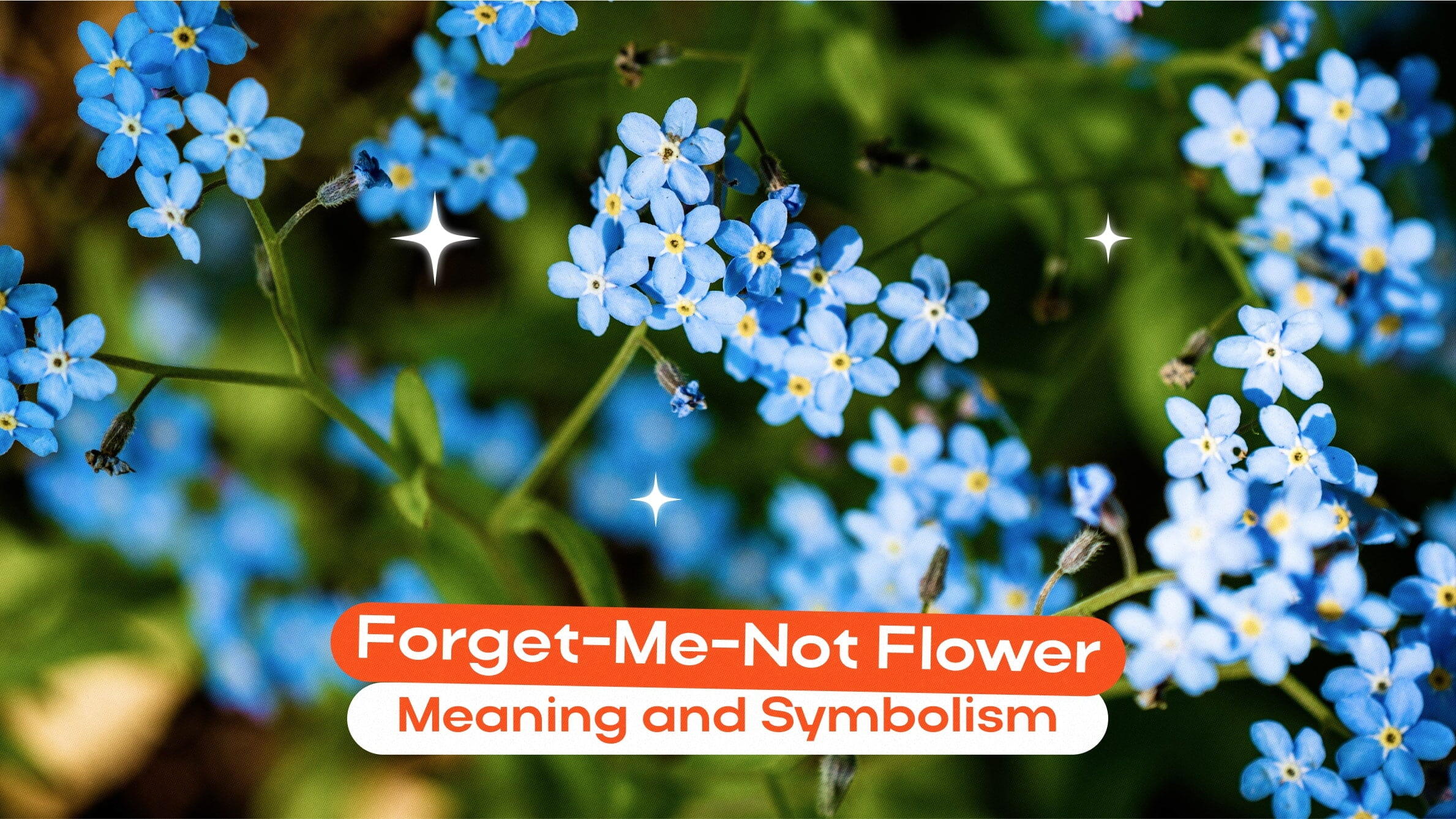
The dainty, tiny forget-me-not flower not only captivates the eyes of the beholder with its endearing, humble beauty but also holds rich symbolic significance, spanning nations and cultures worldwide. If you’re wondering, 'What is the meaning of forget-me-not flowers?' or 'What is the origin of the bloom’s name?', look no further for the answers. Explore our article to uncover the forget-me-not meaning, find out fascinating facts about its cultural associations, and delve into the additional dimensions of symbolism conveyed by its various colours with blue standing out as the most iconic hue (for those who have a fondness for this elegant colour, Flowwow offers a diverse selection of fresh and exquisite bouquets featuring blue flowers, curated by London's expert florists).

Forget-me-not history and origins
The colloquial term 'forget-me-not' refers to a plant formally recognised as Myosotis. Its species are widespread across continents, thriving in damp environments. Although the plant had been treasured in German and French gardens for centuries, it wasn't until the 1800s that it gained favour among British gardeners.
The common name attributed to the flower in some countries of the Northern Hemisphere has multiple versions of its origin story. One such tale unfolds amidst the picturesque riverside. As an affectionate couple strolled by the riverbank, they spotted charming blue blooms being swept away by the rapids. Determined to secure them for his beloved, the man leapt in and seized the flowers, but was then carried away by the swift current. Before vanishing, he managed to fling a bouquet to his sweetheart, urging her to remember. She kept it close until the last day, a lasting token of their affection and devotion.
According to another legend, God has gathered together all the myriad flowers to bestow upon each a unique name. As the divine task neared its end, only one solitary plant remained unnoticed. Just as the Almighty began to depart, the tiny flower spoke out in a voice of tender desperation: 'Forget me not, O Lord!' This humble plea touched God's heart. 'Forget-me-not,' the Divine decreed, 'so shall you be called.'
Forget-me-not masonic meaning
The forget-me-not symbolised charitable endeavours in the interwar era of Germany; introduced to German Masonry in the 1920s, this emblem served to remind members of the Masonic fraternity about the Grand Lodge's commitment to helping the less fortunate.
Starting from the early 1930s, Freemasonry encountered persecution and suppression imposed by Nazis, with many Masons facing imprisonment or death. Despite this, a group of German Masons, forced underground, selected the bloom as their fraternity's covert symbol. In these dire circumstances, they displayed it as a marker of their identity, even within the confines of concentration camps. After World War II, Masons adopted the flower as a manifestation of unity and strength in the face of adversity.
Forget-me-not magical meaning

Throughout the centuries, forget-me-nots have been imbued with various magical properties in diverse folkloric traditions. These beliefs ascribe the plant with the power of a talisman capable of bringing luck, warding off evil spirits, and enhancing one's intuition. Within the domain of witchcraft, the bloom is thought to possess the capacity to fortify familial and friendship ties and facilitate healing rituals.
Forget-me-not flower’s symbolic meaning
Remembrance
The core symbolic essence of these blooms, hinted in their name, centres on honouring memories of precious moments spent with dear ones. Forget-me-nots were traditionally planted on graves as a tribute to remembrance; also, lovers adorned themselves with these blooms as a token of everlasting affection, ensuring their bond remained strong when separated.
Fidelity & faithfulness
The moving narrative behind the bloom’s name, as elucidated in a preceding section of the article, lends a poignant resonance to its symbolism. This tale of tragic love endows the forget-me-not with a potent association with true, everlasting affection, unwavering fidelity and devotion that persists beyond the veil of death.
Long-lasting connection
Beyond other interpretations, these delicate blooms epitomise enduring bonds between lovers and old friends. They signify a steadfast connection that stands firm through the test of time, remaining unbroken despite occasional separations.
Forget-me-not flower’s spiritual meaning
The forget-me-not embodies a spiritual essence that resonates with its name, epitomising remembrance and lasting affection. Its tender petals evoke treasured memories and everlasting bonds within the depths of the heart. Within numerous traditions, the act of gifting or planting forget-me-nots is a symbolic gesture, invoking a sense of perpetual presence and spiritual interconnectedness among souls.

Forget-me-not flower’s colour meaning
Blue forget-me-not flower’s meaning
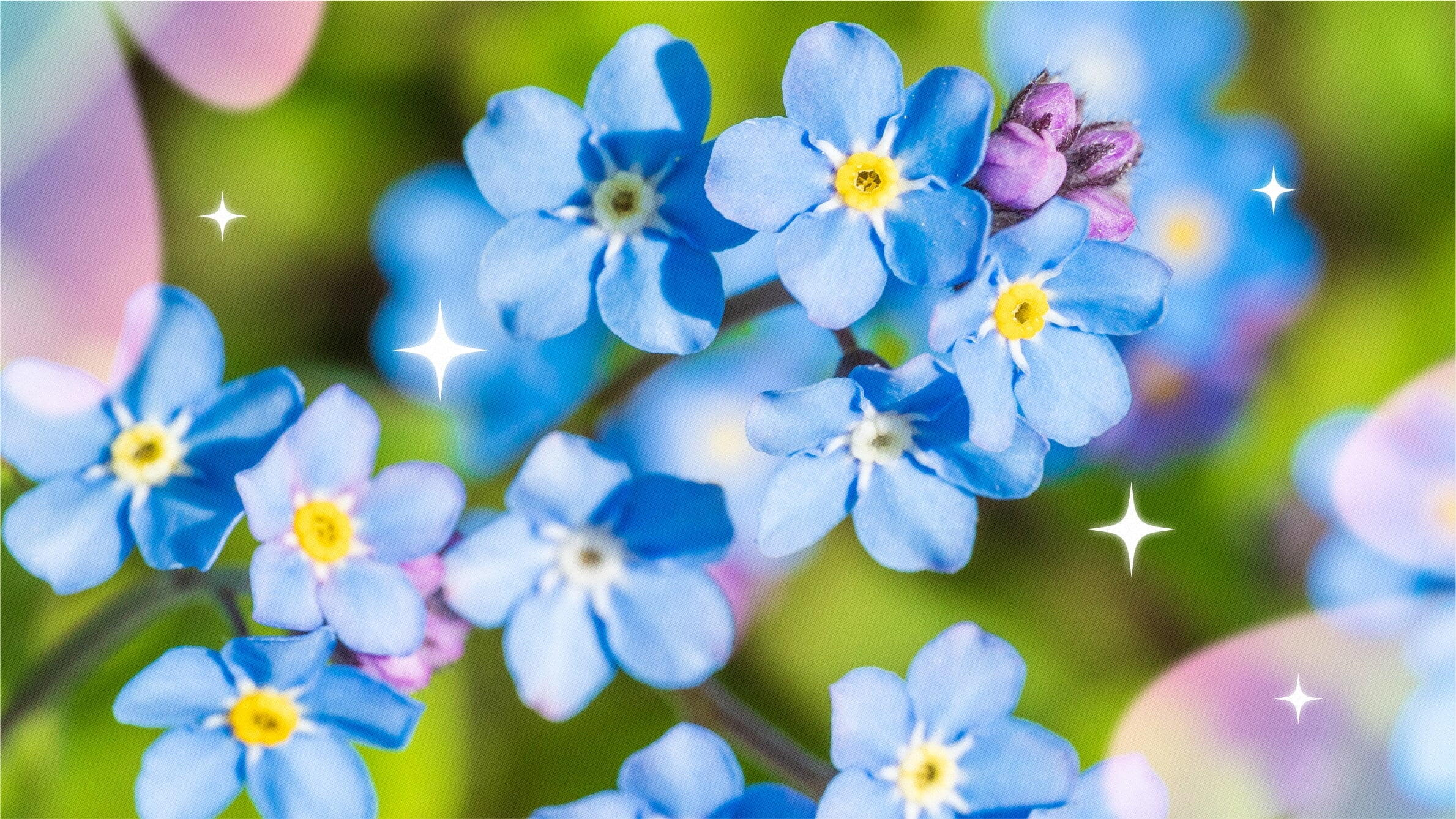
Blue forget-me-nots are probably the most iconic. The sky-blue flower embodies notions of patience, loyalty, and hope; the petals shaded in darker tones are linked with nostalgia and melancholy.
Pink forget-me-not flower’s meaning
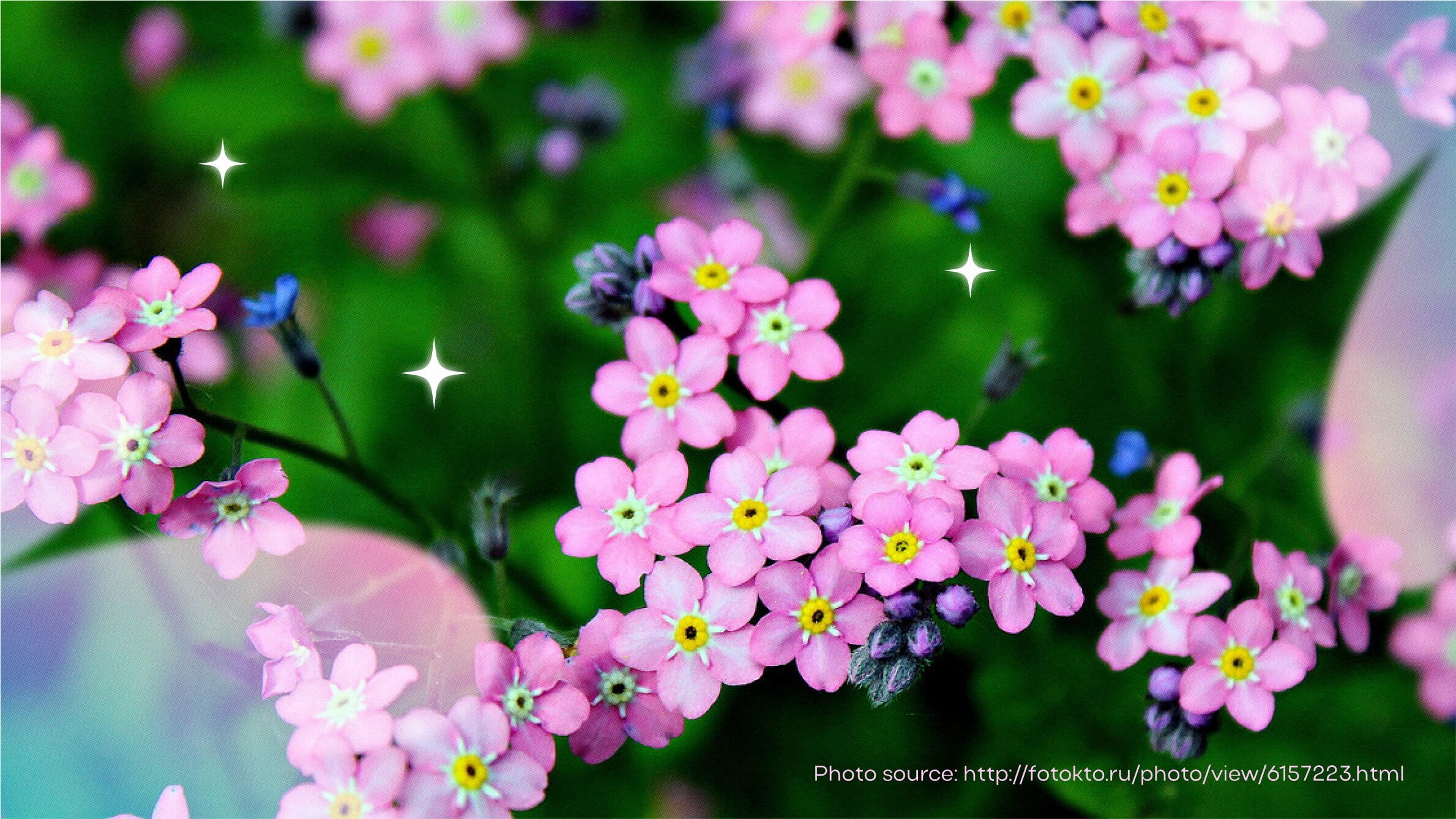
The pink forget-me-not holds a special, gentle charm. Much like other blooms of this colour, this bloom is a symbolic representation of such concepts as tenderness, care, and romantic love. It makes an ideal gift for those in love, be they partners or spouses.
White forget-me-not meaning
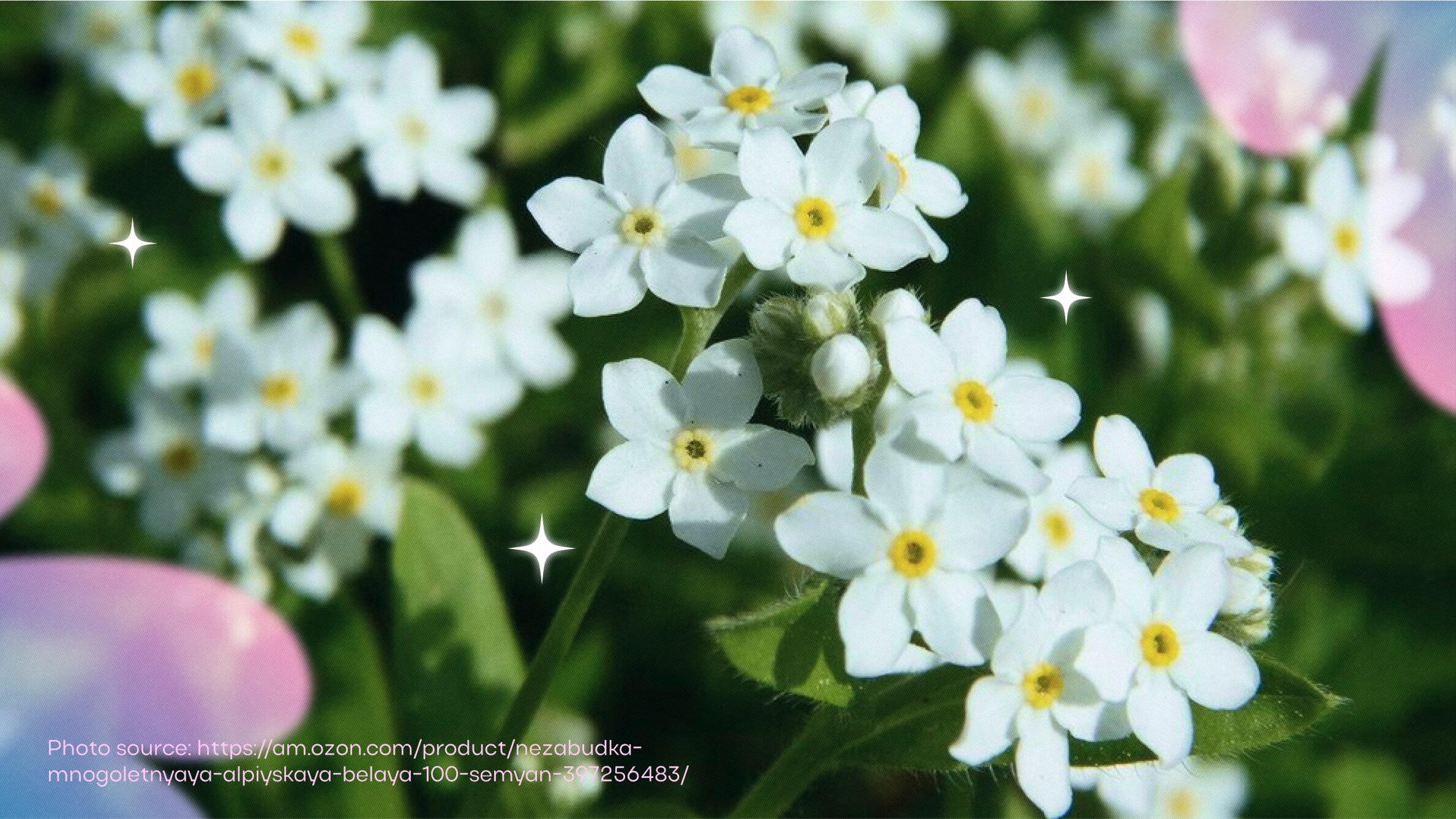
White forget-me-nots evoke a sense of serenity and gracefulness. These enchanting flowers are tied to acts of charity or selfless care for those truly in need. In addition, the tender hue of these petals conveys a symbolism of innocence, connection to the divine, and spirituality, making them a refined option for bouquets and floral arrangements at christenings and weddings.
Purple forget-me-not flower’s meaning

Purple forget-me-nots, in the same vein as their blue counterparts, epitomise lasting memories and affection that endure through the trials of time. Nevertheless, the majestic shade introduces an extra dimension of significance, traditionally linked to respect, spiritual awakening, and appreciation.
Red forget-me-not flower’s meaning
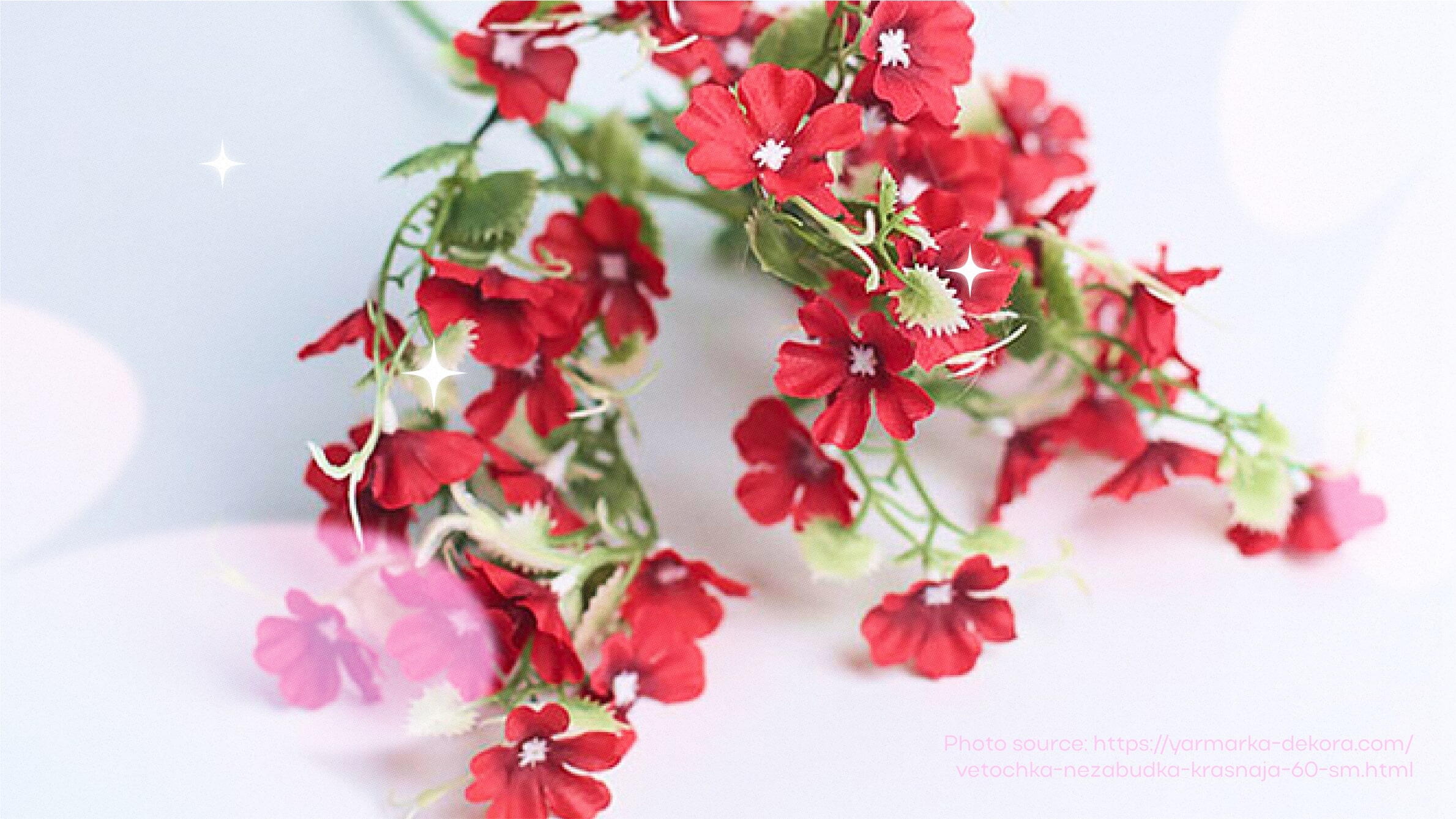
Unfortunately, red forget-me-nots do not naturally occur. Although the flower’s petals may indeed display a quite bright hue of pink, they do not convey the same symbolic meanings as red blooms, which often signify vitality, courage, intense emotions, and ardent passion.
When to give forget-me-not flowers

Aesthetic appeal and symbolic significance make forget-me-nots a thoughtful selection for various occasions. Whether marking a special anniversary, celebrating a birthday, or even offering solace during moments of grief, these delicate blooms speak volumes without saying a word. Their understated beauty serves as a gentle reminder of appreciation and gratitude for those cherished in our hearts, including family members, friends, or colleagues. In matters of the heart, forget-me-nots symbolise lasting affection and bonds that endure through time. Additionally, they represent a poignant token to send to loved ones afar, reminding them that they are ever-present in our thoughts, despite the distance.
Interesting facts about forget-me-nots
- It has been noted that forget-me-nots held significance across diverse cultures, often believed to possess magical properties, bring good fortune, and ward off evil forces. This symbolism may have resonated with King Henry IV of England, who adopted the bloom as an emblem while in exile; following his return to England, the king continued to uphold this badge.
- The flower embodies a poignant symbol of remembrance for the Armenian Genocide, honouring the lives lost and ensuring that their stories are never forgotten.
- In Newfoundland, it is intertwined with the memory of the fallen heroes of World War I.
- Moreover, the bloom is a floral emblem of the US state of Alaska.
- The Alzheimer’s Society utilises the bloom as an emblem to advocate for increased awareness of the condition.
- Those born in September are graced with the forget-me-not as their birth flower, standing alongside the enchanting morning glory and the elegant aster.




